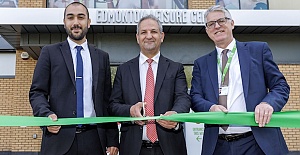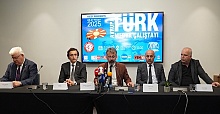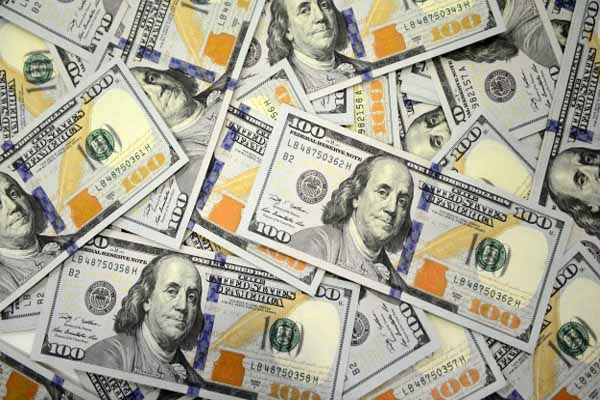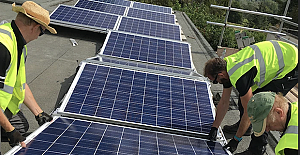Brazil now boasts the most multi-millionaires in Latin America and is ranked tenth in the world, according to a study reported by local media. The study by Johannesburg-based wealth consultancy New World Wealth also showed that Sao Paulo, Brazil's biggest city and business center, is the world's 17th for multi-millionaires, defined in the report as having more than $10 million in net assets. Currently the world's seventh largest economy, Brazil has 10,300 multi-millionaires, of which 4,400 are concentrated in Sao Paulo and a further 2,200 in Rio de Janeiro, putting the "Marvelous City" in 27th position globally. The United States has the most multi-millionaires by far, with a total of 183,500, and Hong Kong topped the list of world cities with 15,400. The number of multi-millionaires has grown by 71 percent globally over the past decade, the study said, with some 495,000 multi-millionaires worldwide, a number that has been pushed higher by Brazil and South America. "In terms of regional performance, South America stands out, with a 265-percent growth in multi-millionaires in the last 10 years," the study said, adding that the gap between the rich and the super-rich was widening.
In a similar study released by London-based wealth consultancy WealthInsight in 2013, Sao Paulo came 12th in a ranking where multi-millionaires were defined as having $30 million or more to their name.
The current lackluster performance of the Brazilian economy may now mean a wait before the number increases substantially, but according to another British consultancy, Knight Frank, the number of new multi-millionaires in Brazil is set to soar over the next decade.
By 2022, Sao Paulo is set to see an increase of 143 percent, and Rio - 146 percent; the result is bettered only by Shanghai.
Joao Miguel Miranez, a financial consultant at RJ Investimentos in Rio de Janeiro who deals with the company's millionaire and multi-millionaire clients, told the Anadolu Agency: "The trend will be for more millionaires in Brazil, without doubt, although the number might stagnate in the short term."
"Right now we're seeing similar concerns among all our clients about their investments: over the state of the economy and perceived government mismanagement."
"However, our clients are nearly all looking to invest abroad, particularly in the United States, where the market is seen as less volatile," he added. "The Brazilian real is set to depreciate and the economy is set to be sluggish this year and next, although banking services should make a decent profit."
Despite the good news for bankers and those who have inherited wealth, as is the case with a number of Miranez's clients, the financial expert warns that although Brazil's wealth will continue to grow, not everyone is getting a cut, as the "information needed is in the hands of the few".
Brazil is ranked as the 16th most unequal country globally in terms of income distribution.
The richest 10 percent of the population owns 38 percent of the country's wealth, whereas the bottom 10 percent accounts for just two percent of wealth, figures from Brazil's national statistics agency show.
Inequality in Brazil has improved overall according to the country's Gini index, which the CIA uses to measure inequality, reduced from 55.3 in 2001 to 51.9 in 2012.
But the country's recent hosting of the World Cup and the upcoming Olympic Games have served to highlight the enduring gap between the haves and have-nots.
The government has been accused of plowing money into the sporting events, rather than into education and other public services, which triggered mass street protests ahead of the World Cup.
The government says public service funding has increased substantially and that the events will leave a legacy for the country, particularly to infrastructure.
Critics say tangible improvements to everyday life for most people have yet to be felt, and that legacy projects, particularly new airports and shuttle services between cities centers and airports, will be of little use to the poorest in society.
Brazil has reportedly made great strides in tackling poverty, lifting over 35 million of its 200-million population into the ranks of the country's middle classes in the past decade alone.
Social programs such as the "Bolsa Familia," which gives families cash in exchange for all their children going to school and being vaccinated, have been praised for reducing poverty and improving literacy rates.
The country's poverty-busting policies have been singled out as a model for other poor countries, with Brazil "exporting" information through knowledge-transfer programs.
The national minimum wage has also continued to increase, and now stands at 724 Brazilian reals, or $315 a month. In 2009 it was 465 reals a month, and just 260 reals in 2004.
However, with government figures showing more than 6 million people still living in extreme poverty - defined as living on less than $1 a day - much work remains to be done.


 Prime Minister Keir Starmer's 2025 Easter message
Prime Minister Keir Starmer's 2025 Easter message After Nesil Caliskan a by-election will be held in Jubilee ward in Enfield
After Nesil Caliskan a by-election will be held in Jubilee ward in Enfield Publishing the analysis, Labour’s Cllr Ergin Erbil said Everybody in Enfield deserves basic rights
Publishing the analysis, Labour’s Cllr Ergin Erbil said Everybody in Enfield deserves basic rights Gaza-Israel conflict Statement from Cllr Ergin Erbil, Leader of Enfield Council
Gaza-Israel conflict Statement from Cllr Ergin Erbil, Leader of Enfield Council UK AMBASSADOR TO TURKEY VISITS FETHIYE
UK AMBASSADOR TO TURKEY VISITS FETHIYE Journalists from Europe held the Turkish Media Workshop in Skopje
Journalists from Europe held the Turkish Media Workshop in Skopje The European Union called on Turkey to uphold democratic values
The European Union called on Turkey to uphold democratic values Turkish citizens in London said Rights, Law, Justice
Turkish citizens in London said Rights, Law, Justice The 'Prince of Paris' has impressed in his first EuroLeague season
The 'Prince of Paris' has impressed in his first EuroLeague season Saran Media And Euroleague Basketball Extend Media Rights Partnership for Four More Years
Saran Media And Euroleague Basketball Extend Media Rights Partnership for Four More Years Will Rangers be Jose Mourinho’s next victim?
Will Rangers be Jose Mourinho’s next victim? Jose Mourinho's Fenerbahce face Rangers on Thursday
Jose Mourinho's Fenerbahce face Rangers on Thursday Residents welcomed back to Edmonton Leisure Centre
Residents welcomed back to Edmonton Leisure Centre Barclays has become the biggest UK lender so far to cut mortgage rates
Barclays has become the biggest UK lender so far to cut mortgage rates THE SPRING STATEMENT EXPLAINED, UK ECONOMIC OUTLOOK AND GROWTH FORECASTS
THE SPRING STATEMENT EXPLAINED, UK ECONOMIC OUTLOOK AND GROWTH FORECASTS Launch of Made in Enfield gift shop to celebrate local artists and designers
Launch of Made in Enfield gift shop to celebrate local artists and designers
















